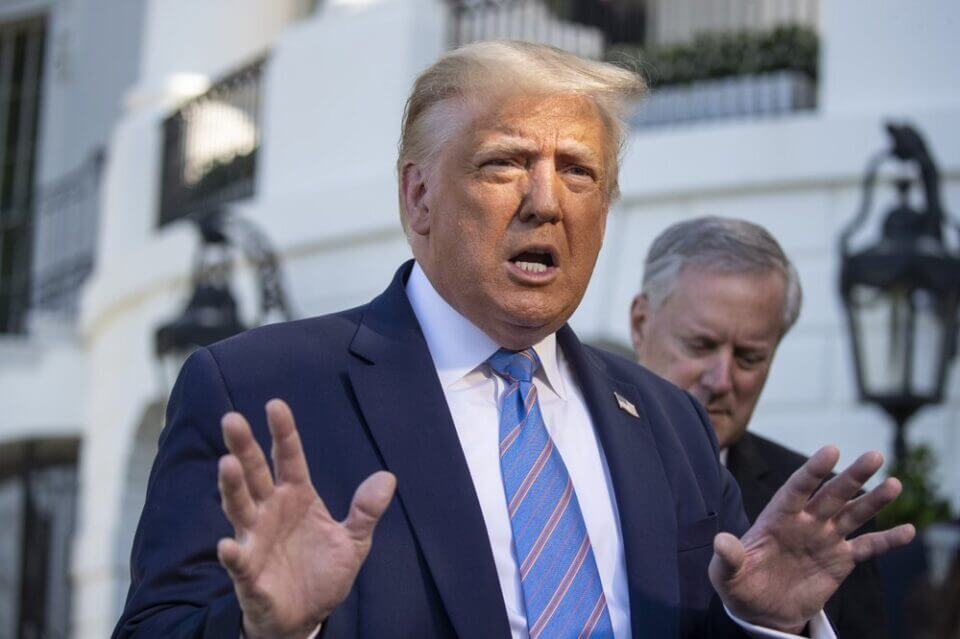
“Throughout my writings on post-modern conservatism, I have generally avoided discussing President Donald Trump’s personality.”
“All the great dictatorial movements of our times were (and are) based on irrational authority. Its driving forces were the submissive individual’s feeling of powerlessness, fear, and admiration for the ‘leader.’ All the great and fruitful cultures are founded on the existence of rational authority: on people, who are able to muster the given functions intellectually and socially and have therefore no need to appeal to irrational desires. But I do not want to close without emphasizing that the individual’s goal must be to become his own authority; i.e. to have a consciousness in moral issues, conviction in questions of intellect, and fidelity in emotional matters. However, the individual can only have such an inner authority if he has matured enough to understand the world with reason and love. The development of these characteristics is the basis for one’s own authority and therefore the basis for political democracy.”
– Erich Fromm, The Authoritarian Personality
Throughout my writings on post-modern conservatism, I have generally avoided discussing President Donald Trump’s personality. The emptiness—indeed, the radical hollowness—of the man is so encompassing that it often made sense to interpret him less as an individual than as a persona: an empty signifier into which actual individuals channeled their animosities and resentments into a raging echo devoid of independent voice. Then-private citizen Trump almost seemed to admit as much in his 1987 book The Art of the Deal, in which he discussed the effectiveness of “truthful hyperbole.” As he put it, “I play to people’s fantasies. People may not always think big themselves, but they can still get very excited by those who do. That’s why a little hyperbole never hurts. People want to believe that something is the biggest and the greatest and the most spectacular.” Given this and the tendency of critics to become moralistic pathologists at the drop of a hat whenever President Trump speaks, it seemed better to focus on the big picture. This was also essential since I have always wanted to stress (and still do) that Trumpist post-modern conservatism is symptomatic of deeper ailments that we have been ignoring for too long. Moralism can very quickly become a reprieve from dealing with structural issues by blaming them all on a single individual or group.
On Joe Biden and Chris Wallace
The first presidential debate of this election cycle changed my mind by reminding me of what makes President Trump such a singularly repugnant person. This is not to let former Vice President Joe Biden or Chris Wallace off the hook, though. Vice President Biden no doubt won some converts by trying to display empathy and warmth in contrast to his opponent’s shrill and rather untruthful hyperbole. Against the odds, Vice President Biden managed to come across as competent and coherent, bucking accusations that he was fighting senility. Few of us would have been able to withstand the constant barrage of nonsense, conspiracy-mongering, and personal attacks President Trump leveled at him. But Vice President Biden was an imperfect candidate from the beginning, saddled with a long legacy of bad political decisions, limited charisma, and modest enthusiasm for his run. The debate showed him battered and seemingly exhausted by President Trump’s spitfire attacks, which should have been all too expected given the latter’s character. Vice President Biden’s own efforts to fight fire with fire by heckling President Trump seemed desperate and out of character.
Chris Wallace tried to moderate things by appealing to the rules, only for President Trump to basically dismiss Wallace as a wimp one minute and posture himself as the victim of a multi-pronged attack the next. If one is not going to bother moderating, why invest money and time in deliberative procedures? Perhaps it would be better to let the two candidates fight it out over Twitter and let their respective partisans take it from there. Wallace’s task may have been impossible, but Albert Camus was correct to say that Sisyphus is admirable, in part, because he keeps trying to roll the boulder up the hill, knowing it will come crashing down again.
The irony of these performances was brought startlingly home several days after President Trump mocked his opponent for wearing a mask. President Trump was airlifted to the hospital to receive world-class socialized heath care for the Coronavirus (COVID-19).
The Fundamental Smallness of Trumpism
All of these sleights, however, were minuscule next to the extravagant ugliness on President Trump’s side. Plenty of commentators have weighed in on his cascading failures: the inability to be a straight talker by calling out white supremacy for the sewage that it is, waffling back and forth on whether he will respect an electoral loss, attacking Vice President Biden’s son for drug problems while ignoring the Biden family’s numerous personal tragedies, spewing contempt towards the mere idea that he should have to follow rules that his campaign agreed to, and so on. I would add to these ruminations the irony of preaching law and order while serving as a public official willing to upend conventional norms and expectations, bending or undermining the rule of law willy-nilly wherever expedient.
But what stuck out for me more glaringly than ever before was the fundamental smallness of the man. As Hegel and many others have observed, it is hard to say what makes a person deep or substantial. One definition I have always found appealing is that the substance of a person comes from the number and intensity of the relationships that he forms with the world outside of himself—particularly, though not exclusively, with other people and ideals of what is of “ultimate concern,” as the theologian Paul Tillich put it. This might appear paradoxical since it makes private depth contingent on external factors, but this testifies precisely to the fact that who we are is very much contingent on the identities and ideas we assume and develop through engaging with a world where the consequences of our actions truly matter. Shallow and small people are precisely those who have no identity since they have no sense that the world outside of themselves exists, except as an object to be manipulated for their own satisfaction.
What makes President Trump both a laughable and dangerous figure is his radical hollowness. His worldview is divorced from any sentiment that what fundamentally matters is anything more than getting what he wants at any cost. The pseudo-macho-authoritarian qualities he occasionally displays testify to this and more. They showcase the brittleness of his sense of self as entirely wrapped up in a desire for adulation and a morbid fear of being dismissed. Throughout his time in office, President Trump has shown moments where he almost seems to resent living in a world where other people have goals and dreams that are independent of—or equally as important as—his. This is combined with a deep fear that their independence may prove a threat to his own gaudy ambitions. These resentments and fears are compensated for by a desire to project himself as an impotently giant figure across the body politic—someone so rich, great, and powerful that the rules of reality themselves can be bent to satiate President Trump’s vanity. No parody is too rich for him, as the image of a man using violence to bully his way into a church for a photo-op proved. This is often propped up by thoughtless appeal to the most rote male stereotypes about tough guys and fighters, which belies his own status as a small man insulated from the materiality of existence.
President Trump’s radical hollowness is the last thing the world needs in the midst of a pandemic when compassion and an ability to see ourselves through the eyes of one another is necessary to heal and rebuild a fraying social fabric. If the last four years have proven anything, it is that President Trump is entirely unable to accomplish this. He can only drag people into the void with him.
Matt McManus is a professor of politics at Whitman College and the author of The Rise of Post-Modern Conservatism, among other books. He can be added on Twitter via @mattpolprof.










